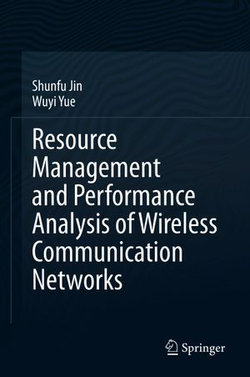With the diversification of Internet services and the increase in mobile users, efficient management of network resources has become an extremely important issue in the field of wireless communication networks (WCNs). Adaptive resource management is an effective tool for improving the economic efficiency of WCN systems as well as network design and construction, especially in view of the surge in mobile device demands.
This book presents modelling methods based on queueing theory and Markov processes for a wide variety of WCN systems, as well as precise and approximate analytical solution methods for the numerical evaluation of the system performance.
This is the first book to provide an overview of the numerical analyses that can be gleaned by applying queueing theory, traffic theory and other analytical methods to various WCN systems. It also discusses the recent advances in the resource management of WCNs, such as broadband wireless access networks, cognitive radio networks, and green cloud computing. It assumes a basic understanding of computer networks and queueing theory, and familiarity with stochastic processes is also recommended.
The analysis methods presented in this book are useful for first-year-graduate or senior computer science and communication engineering students. Providing information on network design and management, performance evaluation, queueing theory, game theory, intelligent optimization, and operations research for researchers and engineers, the book is also a valuable reference resource for students, analysts, managers and anyone in the industry interested in WCN system modelling, performance analysis and numerical evaluation.



Share This eBook: